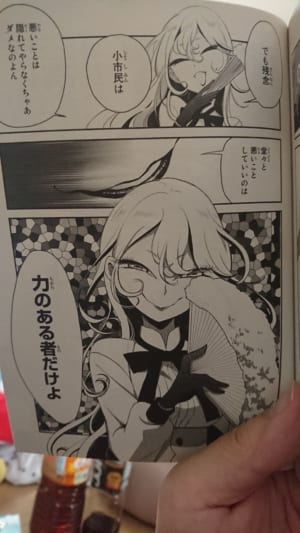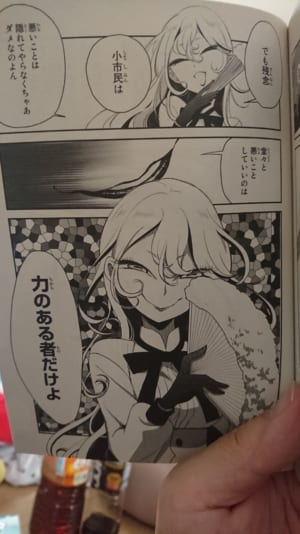original おぱぱごと
・The Etymology of “ままごと” (make-believe play)
The “まま” in “ままごと” comes from the Japanese word “飯(まま),” which means “meal” or “food,” rather than the English word “mama” meaning “mother.” Currently, “ままごと” encompasses not only imitating meals but also the scenes leading up to meals and family life centered around the dining table in general.
In the title “おぱぱごと,” the term “おままごと” is intentionally interpreted as imitating mothers, and on top of that, women playing the role of fathers. In Japan, it is common to use wordplay in the titles of works, which can function as marketing or reflect the essence of the work.
The ability to read the essence of a work from its title requires a certain level of advanced knowledge and cultural understanding, making it an intriguing aspect of Japanese manga.

・ままごとの語源 ままごとの「まま」は、英語の「mama(母)」ではなく食事を意味する「飯(まま)」からきている。現在では、食事だけに限らず食事に至るまでの光景、食卓を中心とした家庭生活一般を含めた模倣も「ままごと」と呼ばれている。
おままごと
は、母の真似事、という意味ではないが、本作品のタイトルである
おぱぱごと
は、意図的に
おままごと
を母の真似事、という意味で解釈し、その上で
女性が父親の役柄を演じる、ということで
おぱぱごと
というタイトルにしたと考えられる。
日本では作品のタイトルに言葉遊びを入れることが多くあり、
マーケティングとして機能していたり、作品の本質を表していたりする。
タイトルから作品を読み取る、というある種の高度な知識と教養を要する楽しみ方ができるのも
日本の漫画の興味深いところです。

